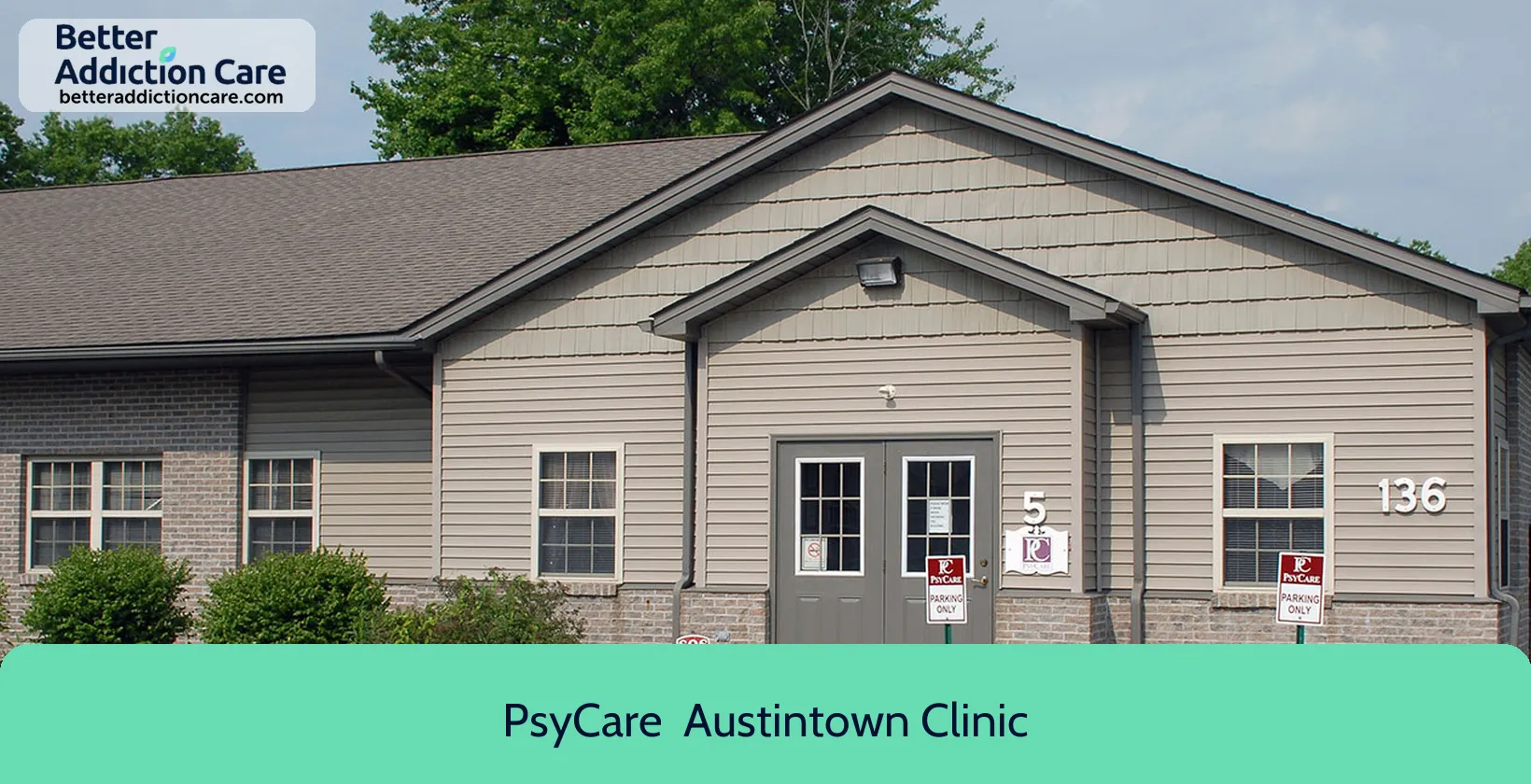PsyCare - Austintown Clinic
Overview
PsyCare - Austintown Clinic is a mental health treatment center for people seeking treatment near Mahoning County. As part of their treatment modalities for recovery, PsyCare - Austintown Clinic provides couples/family therapy, cognitive behavioral therapy, and dialectical behavior therapy during treatment. PsyCare - Austintown Clinic is located in Youngstown, Ohio, accepting cash or self-payment for treatment.
PsyCare - Austintown Clinic at a Glance
Payment Options
- Cash or self-payment
- Medicaid
- Medicare
- State-financed health insurance plan other than Medicaid
- Private health insurance
Assessments
- Comprehensive mental health assessment
- Comprehensive substance use assessment
Age Groups
- Children/adolescents
- Young adults
- Adults
- Seniors
Ancillary Services
- Case management service
- Suicide prevention services
Highlights About PsyCare - Austintown Clinic
6.65/10
With an overall rating of 6.65/10, this facility has following balanced range of services. Alcohol Rehabilitation: 8.00/10, Drug Rehab and Detox: 6.00/10, Insurance and Payments: 6.00/10, Treatment Options: 6.61/10.-
Alcohol Rehabilitation 8.00
-
Treatment Options 6.61
-
Drug Rehab and Detox 6.00
-
Insurance and Payments 6.00
Treatment At PsyCare - Austintown Clinic
Treatment Conditions
- Alcoholism
- Mental health treatment
- Substance use treatment
- Co-occurring Disorders
Care Levels
- Outpatient
Treatment Modalities
- Couples/family therapy
- Cognitive behavioral therapy
- Dialectical behavior therapy
- Integrated Mental and Substance Use Disorder treatment
- Telemedicine/telehealth therapy
Contact Information
Read our Most Recent Article About Drug Addiction
DISCLAIMER: The facility name, logo and brand are the property and registered trademarks of PsyCare - Austintown Clinic, and are being used for identification and informational purposes only. Use of these names, logos and brands shall not imply endorsement. BetterAddictionCare.com is not affiliated with or sponsored by PsyCare - Austintown Clinic.









